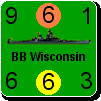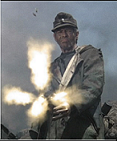warspite1
Posts: 41353
Joined: 2/2/2008
From: England
Status: offline

|
Further to the review of Jellicoe's Jutland An Unfinished Battle, here is a review of another Jutland tome
The Rules of the Game - Jutland and the British Naval Command (Andrew Gordon) Penguin
This book is at times very technical – and on occasion is far from an easy read (unless one has some degree of naval/sailing background). That said, the book is still an enjoyable read and the author does at least provide the occasional diagram to help clarify the points being made. It is interesting to see just how difficult it is to always get accurate information on who did what and when. The author uses track charts from the 5th Battle Squadron to show the movements of each...the results are amazingly different. The German records - supposedly much better - contain many of the same problems.
It is a strange book in that it is, in effect, two books in one. Whether the two books are linked will depend on your point of view, and whether you agree with the central point the author is trying to make. One book (the first and third sections) is about the Battle of Jutland (although the book does not deal with the entirety of the battle in the same level of detail as some). Having said that, it is this book that has been the most helpful to me in fully understanding the various stages of the battle, particularly the events post the arrival of the Grand Fleet. In the first and third sections of the book, when the author is writing about the battle, this book was nothing short of unputdownable (I still don’t know if that is a word!) – absolutely riveting. There are a few brief personal vignettes too that break the heart.
Whilst the author makes clear his belief that there were command failings during the battle, he does not set about to simply rubbish Royal Navy performance at Jutland. He is also very clear about the four major mistakes made by Admiral Scheer during the battle – any of which could have been fatal to the German cause.
The second, book within a book, concentrates on what the author believes to be the reason that the Royal Navy failed to win a decisive victory at Jutland.
This section, in itself is not uninteresting – and the author makes what I believe is a pertinent point around the signals procedure that the RN entered the war with; a procedure that was too complicated, took too long and was too reliant on not having the few specialists able to operate it taken out in battle and/or the masts to fly them from still intact and/or the visibility to see them under battle conditions. To this end there is a large section on the sinking of the HMS Victoria in 1893 and the drowning of Vice-Admiral Tryon (who was trying to pioneer a less complicated signals process – one that more or less died with him).
Like most (all?) books on Jutland, the Jellicoe vs Beatty debate is always there in the background. The author is quite scathing of Beatty post war but appears to believe Jellicoe “and his men” to be the main cause of the problem during the battle. This is where I believe the middle section of the book loses its way somewhat. The author suggests that the RN in 1914 was led by admirals that were not trained to think enough for themselves; that peacetime conditions and unrivalled naval superiority led to a situation whereby the only thing that mattered was to have the shiniest ship. This is not an unbelievable situation – after all its human nature that unrivalled success can lead to complacency. But it’s when the author tries to make a case for why that state of affairs existed that I think he over eggs the pudding and goes too far to try and make his case.
Were there some admirals holding positions that they shouldn’t? Well it would be strange in any large organisation if that were not the case, but essentially the author brings in links to the Royal Family, Polar Exploration, Freemasonry and Jellicoe’s circle and it all goes a bit too far in my opinion, without really proving anything. Does being a friend of the future George V mean one is unsuited for battle? Does being outside that circle mean that one is? As part of this argument I think Rear-Admiral Hugh Evan-Thomas (commander of the 5th Battle Squadron) gets a particularly rough ride but he is a useful foil if you want to make Beatty’s case appear better.
But even if you don’t agree with the author’s views in the middle section of the book, it’s interesting to help get a feel for the Royal Navy at that time – and as I said earlier, when the author is writing about the battle, this book is simply brilliant.
Would I recommend this book? One word - YES!
< Message edited by warspite1 -- 5/14/2016 10:24:55 AM >
_____________________________
England expects that every man will do his duty. Horatio Nelson October 1805  |
 Printable Version
Printable Version



















 New Messages
New Messages No New Messages
No New Messages Hot Topic w/ New Messages
Hot Topic w/ New Messages Hot Topic w/o New Messages
Hot Topic w/o New Messages Locked w/ New Messages
Locked w/ New Messages Locked w/o New Messages
Locked w/o New Messages Post New Thread
Post New Thread